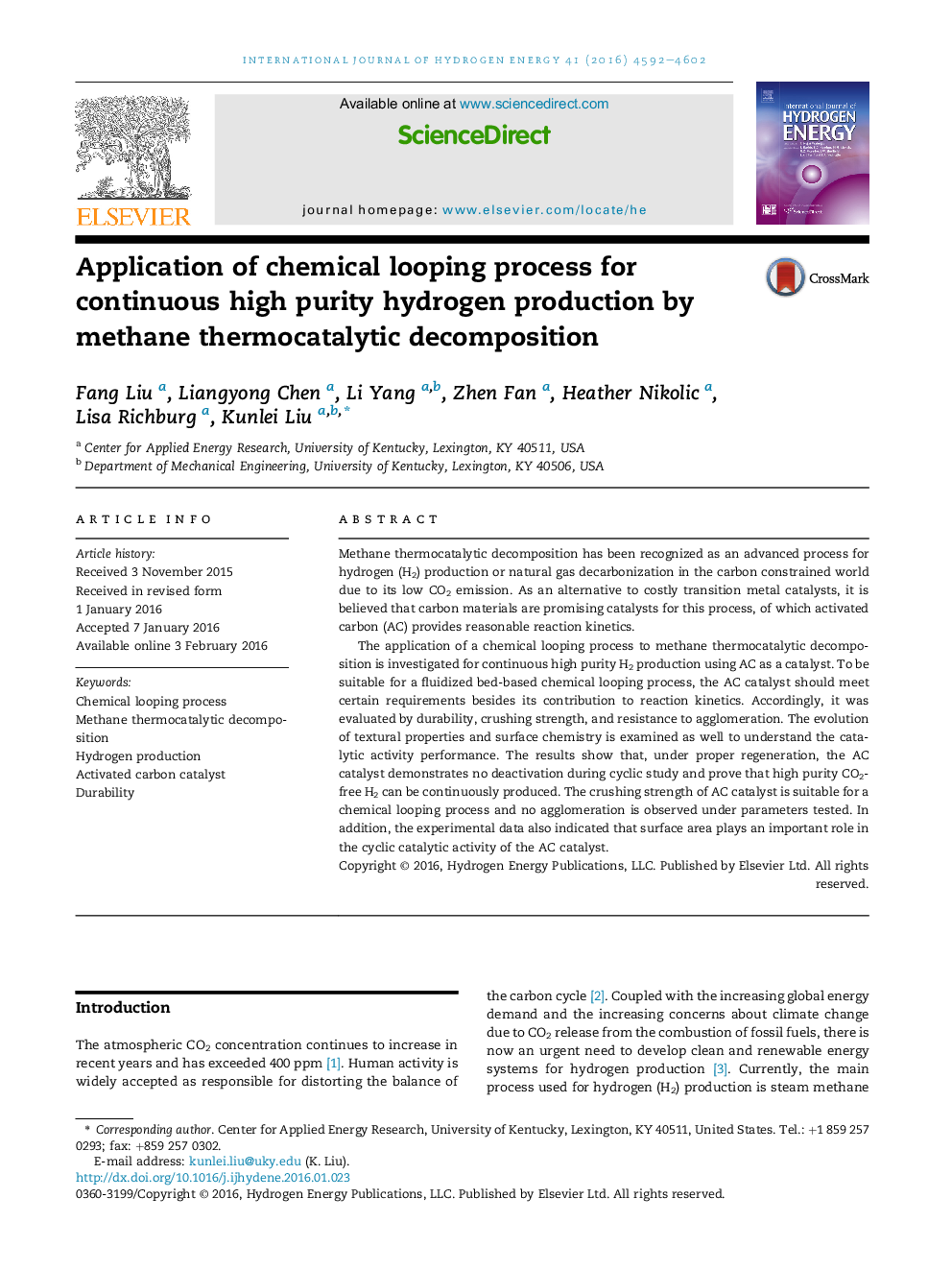| Article ID | Journal | Published Year | Pages | File Type |
|---|---|---|---|---|
| 1271147 | International Journal of Hydrogen Energy | 2016 | 11 Pages |
•A chemical looping (CL) process for stable, high-purity H2 production is proposed.•Activated carbon (AC) shows no catalytic degradation with deep regeneration.•Cyclic activity of AC relies on its surface area instead of oxygen functional groups.•Crushing strength of AC is suitable for a CL process with no agglomeration.
Methane thermocatalytic decomposition has been recognized as an advanced process for hydrogen (H2) production or natural gas decarbonization in the carbon constrained world due to its low CO2 emission. As an alternative to costly transition metal catalysts, it is believed that carbon materials are promising catalysts for this process, of which activated carbon (AC) provides reasonable reaction kinetics.The application of a chemical looping process to methane thermocatalytic decomposition is investigated for continuous high purity H2 production using AC as a catalyst. To be suitable for a fluidized bed-based chemical looping process, the AC catalyst should meet certain requirements besides its contribution to reaction kinetics. Accordingly, it was evaluated by durability, crushing strength, and resistance to agglomeration. The evolution of textural properties and surface chemistry is examined as well to understand the catalytic activity performance. The results show that, under proper regeneration, the AC catalyst demonstrates no deactivation during cyclic study and prove that high purity CO2-free H2 can be continuously produced. The crushing strength of AC catalyst is suitable for a chemical looping process and no agglomeration is observed under parameters tested. In addition, the experimental data also indicated that surface area plays an important role in the cyclic catalytic activity of the AC catalyst.
